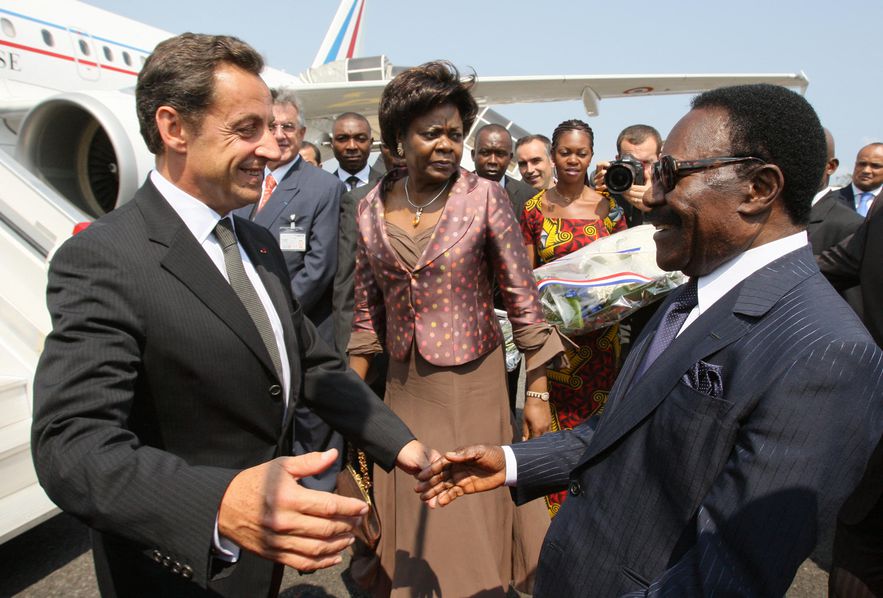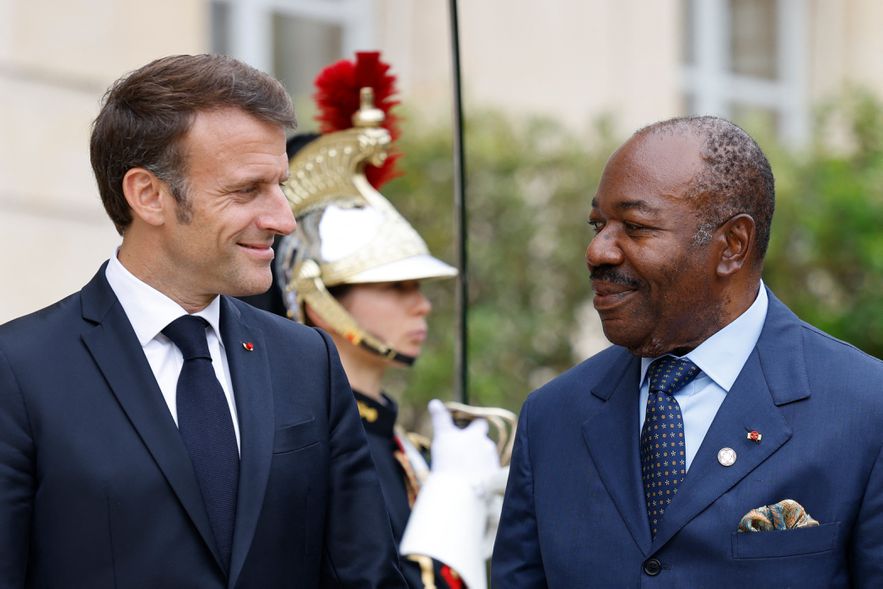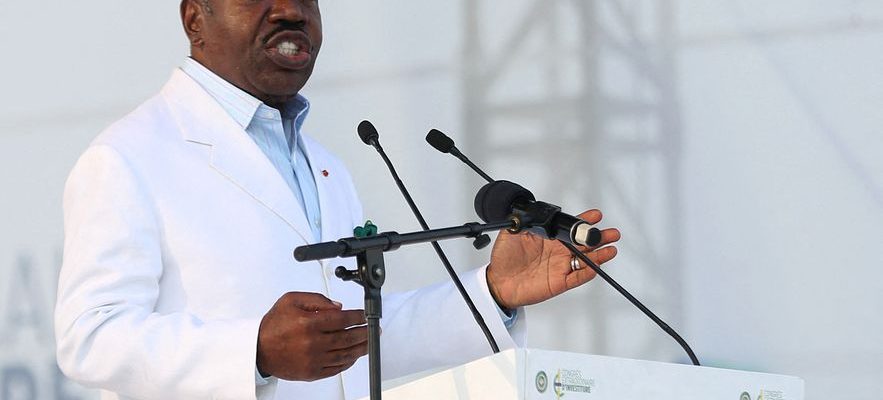One more military coup in Africa. This Wednesday, August 30, when Ali Bongo had just been proclaimed winner of the presidential election and re-elected for a third term with 64.27% of the vote, according to the official results, soldiers announced that they were putting an “end to the regime in place”. in Gabon. A look back at fourteen years of unchallenged reign over Gabon.
A stroke in Saudi Arabia
Ali Bongo, erased and debonair president elected in 2009 after the death of his father – the irremovable and intractable Omar Bongo -, has turned into a ruthless hunter of “traitors” and “profiteers” at the top of the state. Especially against those who thought he ended in 2018 after a stroke in Saudi Arabia.
Gabon’s President Ali Bongo Ondimba delivers a speech at the Nzang Ayong stadium in Libreville on July 10, 2023, a day after announcing he would seek a third term as leader of the oil-rich African country.
© / AFP
He had then disappeared ten long months abroad, a convalescence and an intense re-education which seem to have made him a miracle but have made his power waver. Since then, his opponents have regularly questioned his intellectual and physical capacities to lead the country. Some even claiming that a look-alike replaces him. But if a stiffness in the right leg and arm prevents him from moving easily, the head is there, assure regular visitors, diplomats or others.
A double electroshock
During his first term, Ali Bongo was the antithesis of his father: without the charisma and confidence of the “patriarch” Omar Bongo, who reigned unchallenged for 41 years over this very rich small oil state in Central Africa. Ali Bongo thus found his authority difficult, especially in the face of reluctant caciques of his all-powerful Gabonese Democratic Party (PDG).

Former Gabonese head of state Omar Bongo, father of Ali Bongo, greets former French President Nicolas Sarkozy at Libreville airport, July 27, 2007.
© / AFP
Until his re-election in 2016, already highly contested by the opposition and officially won by only 5,500 votes. An electric shock for him, followed by a second – his stroke -, which will precipitate his moult. His recovery had been punctuated by a failed putsch, as pitiful as it was mysterious, by a handful of soldiers on January 7, 2019, and a creeping attempt to be scrapped by his omnipotent chief of staff, Brice Laccruche Alihanga.
Ali Bongo had left him the keys to Gabon with blind trust, like many others before him. Brice Laccruche Alihanga has been in prison for more than three years, with several loyal ministers and senior officials, all targeted by a ruthless “anti-corruption” operation.
A mutation made
Then Ali Bongo has since displayed himself as a “father of rigor” for ministers and advisers subject to audits and dismissed at the slightest suspicion, in this Gabon afflicted by endemic corruption since the decried decades of “Françafrique”, including Omar Bongo was the iconic pillar.
Vain words and postures, umpteenth promises never kept, according to the opposition, for which the gap is widening between the wealthy and the poor in one of the richest countries in Africa per capita, but which is struggling to diversify an economy too dependent on oil and keeps one in three inhabitants below the poverty line.

French President Emmanuel Macron (L) greets Gabonese President Ali Bongo Odimba before their meeting at the Elysee Palace, on the sidelines of the new global financial pact summit, in Paris, June 22, 2023.
© / AFP
During his first mandate, heir to a part of the immense paternal fortune, “Monsieur Fils” or “Baby Zeus” as he was derided then, was portrayed by the opposition as distant from his people, reclusive in luxurious properties in Gabon and abroad or driving many luxury cars. He was criticized for letting advisers and ministers run the country’s affairs. And sometimes confuse them with their own business.
political strategist
Recently, Ali Bongo had also metamorphosed into a formidable political strategist, like his father: he multiplied the disgraces in his camp and poached, with ministerial portfolios or high-sounding titles, in a disunited opposition. For his zealots, he is a phoenix rising from his ashes, at the cost of painful rehabilitation sessions. For his critics, he is pushed by an immediate entourage who does not want to let go of power and its achievements after 55 years of “Bongo dynasty”.
However, the path was far from clear for him. Jet-setter passionate about music, he wanted to be the “Gabonese James Brown” and imagined a career, recording in 1978 a 45 rpm “soul, disco, funk”. Then Alain-Bernard Bongo became Ali Bongo when his father converted the family to Islam in 1973.
In 1989, Omar Bongo offered him, at the age of 29, a luxury morocco, Foreign Affairs, then ten years later the strategic portfolio of Defense, which he would occupy until 2009.
Barely elected, Ali Bongo ostensibly distances himself from France, in particular to break with the policy of proximity of the father. To the point of deserting the luxurious family homes which earned nine other children of Omar an indictment (indictment) in Paris, in particular for concealment of embezzlement of public funds, in the so-called “ill-gotten gains” affair.
However, the trend of relations between Ali Bongo and Emmanuel Macron was especially warming lately. In interview given to Young Africa on June 8, Ali Bongo described relations between Gabon and France as “excellent”, and spoke of the “links of great mutual trust that we have forged on a personal level with President Emmanuel Macron”. But the French president’s visit to Gabon last March also caused debate, with the Gabonese opposition accusing the French state of “softening” Ali Bongo with a view to his candidacy for re-election.
